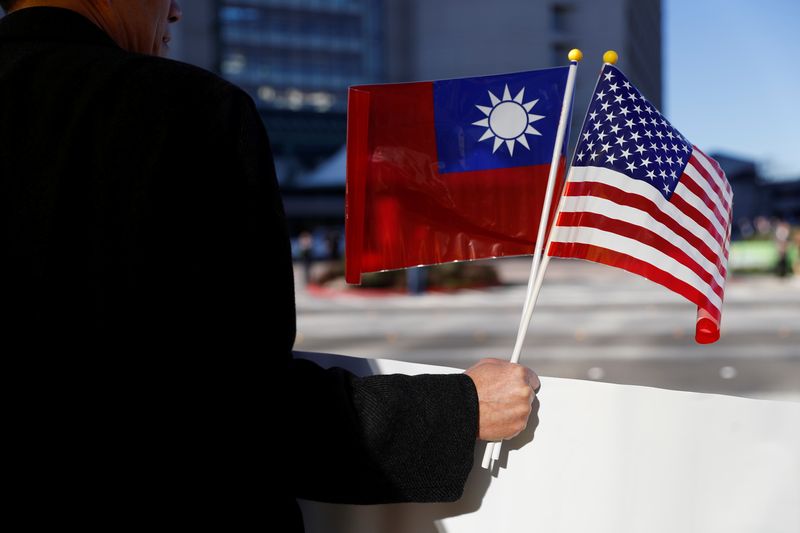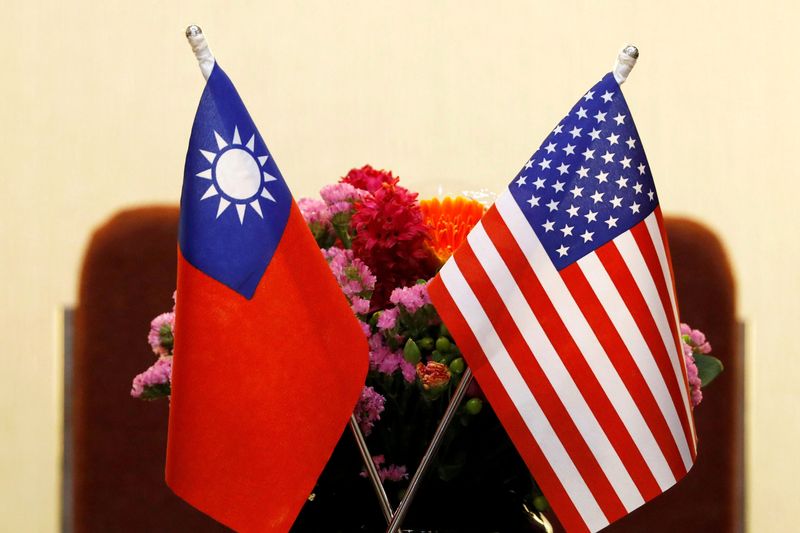By David Lawder
WASHINGTON (Reuters) -The U.S. and Taiwan reached agreement on the first part of their "21st Century" trade initiative, covering customs and border procedures, regulatory practices, and small business, the U.S. Trade Representative's office said on Thursday.
After the initial agreement of the U.S.-Taiwan Initiative on 21st Century Trade is signed, negotiations will commence on other, more complicated trade areas including agriculture, digital trade, labor and environmental standards, state-owned enterprises, and non-market policies and practices, USTR said.
U.S. Trade Representative Katherine Tai said in a statement that the deal strengthens U.S.-Taiwan relations and demonstrates they can work together to advance trade priorities for their populations.
"We look forward to continuing these negotiations and finalizing a robust and high-standard trade agreement that tackles 21st Century economic challenges," Tai said.
Taiwan's Office of Trade Negotiations in a statement called the agreement "historically significant" and said Taiwan aimed to finalize negotiations on all remaining issues by the end of the year.
The pact is not expected to alter goods tariffs, but proponents say it will strengthen economic bonds between the U.S. and Taiwan, open the Chinese-claimed island to more U.S. exports, and increase Taiwan's ability to resist economic coercion from China. Democratically governed Taiwan strongly rejects China's sovereignty claims.
China has reacted furiously to Taiwan President Tsai Ing-wen's recent engagements with high-ranking U.S. politicians, including an April meeting with U.S. House of Representatives Speaker Kevin McCarthy. Announcement of the trade pact comes just ahead of planned meetings between China's commerce minister, Wang Wenta, and USTR Tai and U.S. Commerce Secretary Gina Raimondo.
The bilateral talks commenced last August, after the Biden administration excluded Taiwan from its larger pan-Asian trade initiative, the Indo-Pacific Economic Framework.
USTR said the text on customs and trade facilitation will reduce red tape for U.S. firms to export products to Taiwan, allowing for electronic filing of customs forms and online payment of duties and fees, cutting waiting times for vessels.

The texts on good regulatory practices and services regulation seek to streamline operating licenses for firms seeking to operate across borders and promote fair competition opportunities, USTR said.
The trade agency added that anti-corruption texts are based on those in the U.S.-Mexico-Canada Agreement on trade and address money laundering, denial of entry for foreign public officials. The small- and medium-sized enterprises text aims to facilitate cross border investment and finance in the sector, USTR said.
